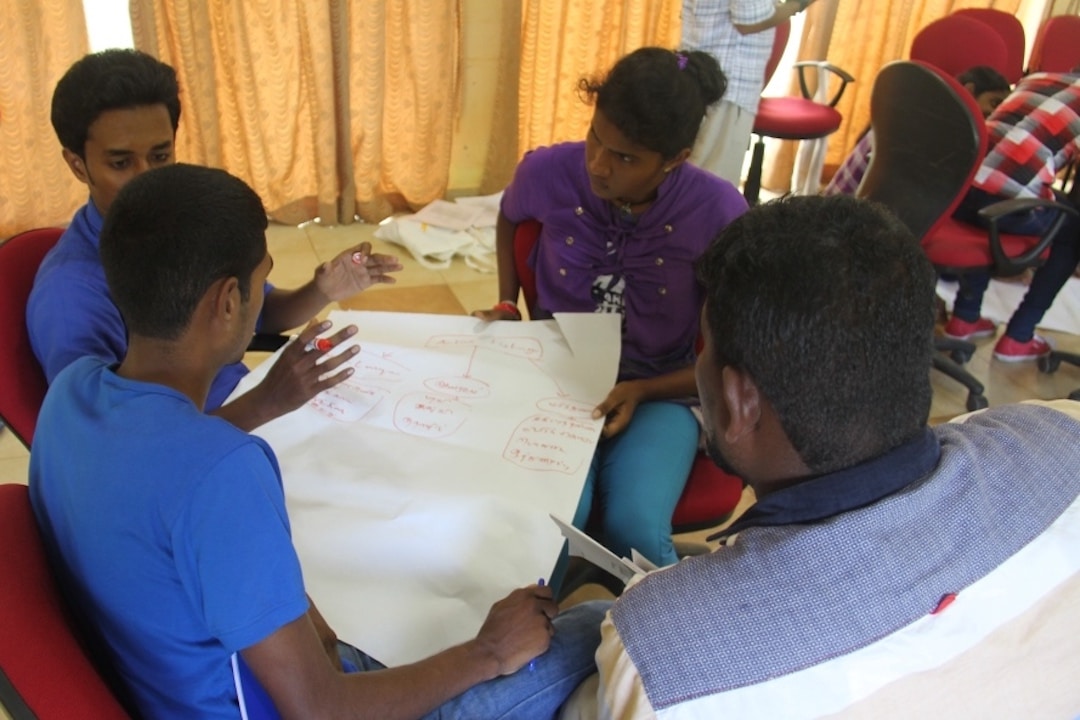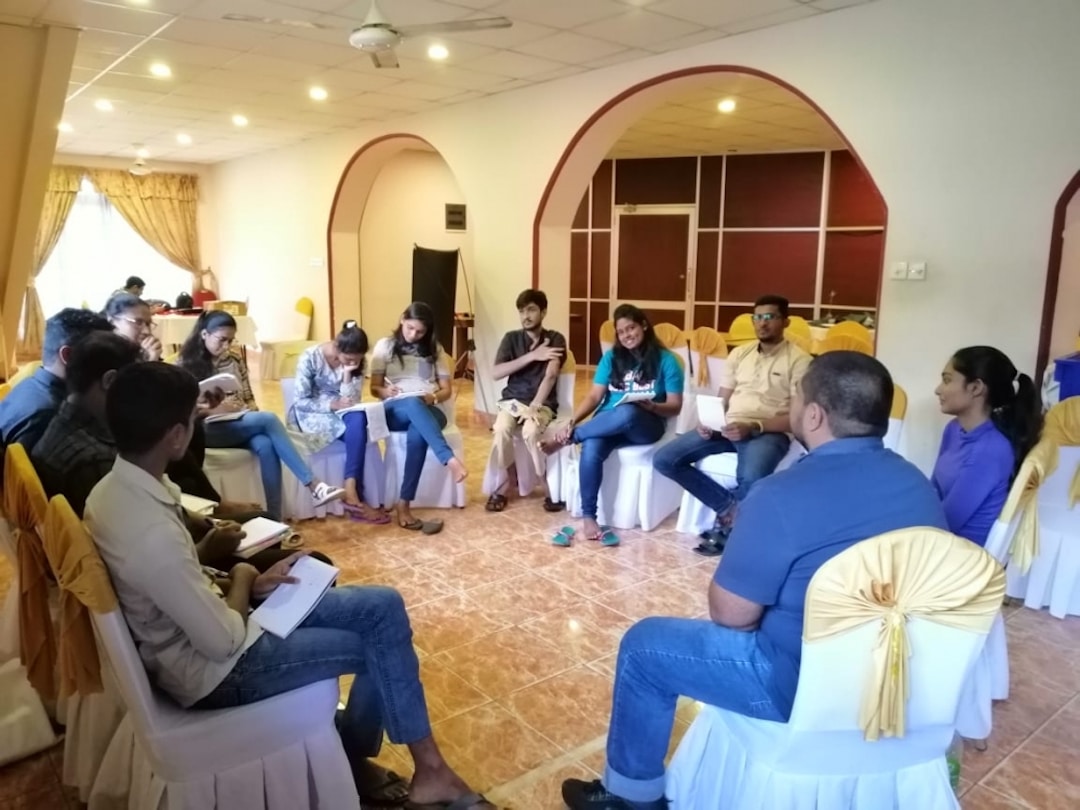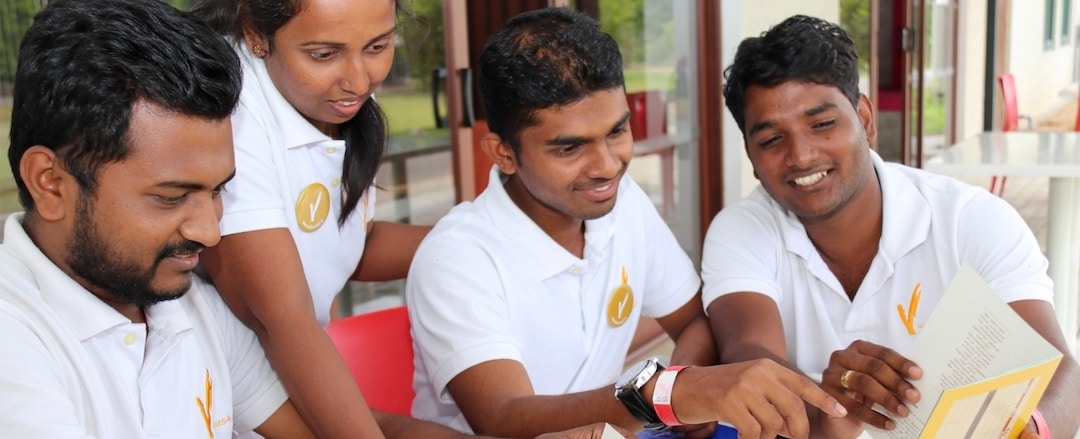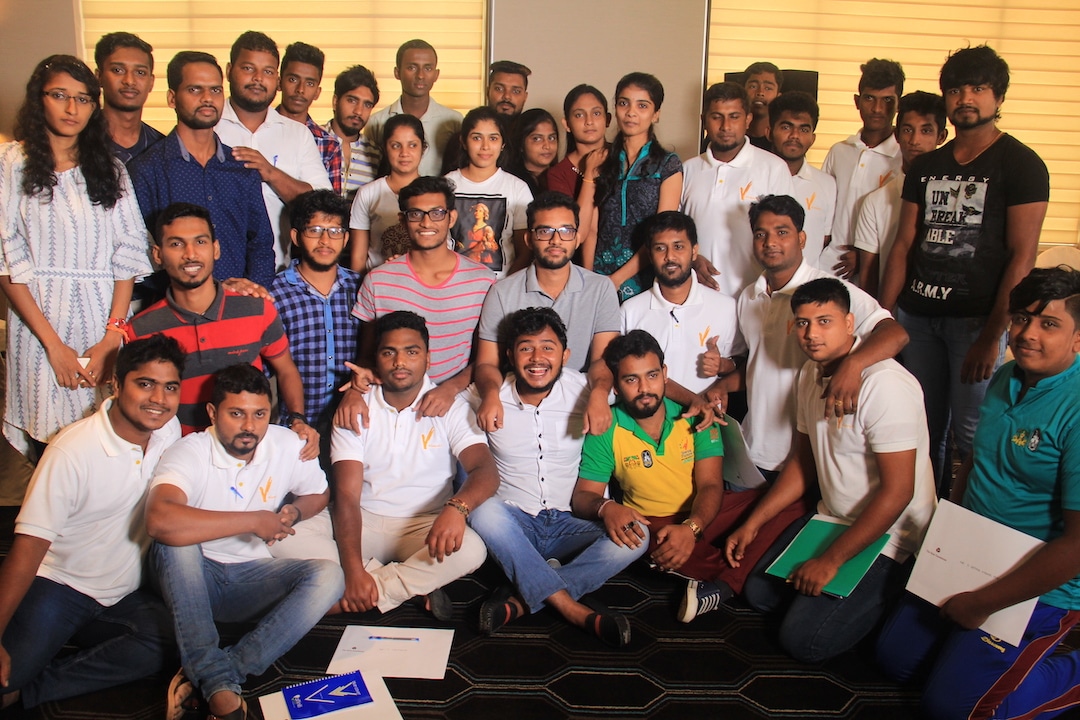March 17, 2021
Sri Lanka’s bitter, 30-year civil war continues to cast shadows of grief, loss, and sectarian tension over an ethnically diverse population of Sinhalese Buddhists, Tamil Hindus, Muslims, and Catholics. As the country attempts to navigate the post-conflict period, there is no more urgent task than restoring inclusiveness and social cohesion to public life. The schools are a key to meeting this challenge, and it has been a mandate of governments past and present to reform the education system to foster greater tolerance and ensure that intercommunal conflict and violence do not recur.
The introduction of classroom subjects on civic education in 2008 seemed promising, but it has not resulted in any meaningful improvement in intercommunal relations, and values education generally has been perceived as a matter of spiritual well-being related to religious affiliation. The absence of a values-based approach, and the need for a secular space in which to engage it, inspired The Asia Foundation to launch Promoting Shared Values in Sri Lanka, a project to improve intercommunal relations in the country. The project has introduced its own values curriculum to youth leaders and activists in the districts of Kalutara, Kurunegala, Ampara, Trincomalee, Mannar, and Vavuniya, as well as more broadly via social media.

Mind-mapping activities during a values curriculum rollout in Trincomalee. (Photo: The Asia Foundation)
The values curriculum was developed by the Foundation in 2012, and is also available as an Android mobile application and through its own website. It seeks to cultivate values in children and youth that support a pluralist and tolerant approach to issues and problems that arise with other communities and within their own. These include core humanistic values such as active listening, peace, respect, tolerance, compassion, honesty and sincerity, and cooperation.
Two important studies conducted by the project underscore the need to institutionalize values-based education, and they provide some interesting insights into how to pursue the endeavor. One, a survey conducted from May to August last year, was a follow-up to 2018 research into youth perceptions of intercommunal, ethno-religious relations. The second, from May to September last year, was a qualitative assessment of the impact of values curriculum training on participating youth.

Reflection sessions during a values curriculum rollout. (Photo: The Asia Foundation)
Key findings from the follow-up survey include some hopeful trends since 2018 in perceptions of peace and of ethnic and religious groups in the country, and insights into how youth perceptions continue to be shaped by the internet and social media, by their level of activism, and by the communities they live in.
Almost all respondents (94 percent) continued to believe that peace education should be embedded in the school curriculum. Respondents were equally likely in 2018 and 2020 to identify honesty (72 percent), peace (68 percent) and respect (64 percent) as the most important values to foster in children, but the proportion mentioning open-mindedness and coexistence increased. Eighty-five percent of the young people polled felt that children from diverse ethnic and religious backgrounds had opportunities to interact in school. Of those, 70 percent mentioned the classroom, 40 percent cited sports activities, and others mentioned extracurricular activities, clubs, and associations as places where these interactions could occur. However, the survey also captured a significant level of acceptance of verbal aggression (53 percent) and physical violence (51 percent), especially when defending one’s religion.
Youth activism is attracting growing interest across the country and is considered an avenue for greater interaction among ethno-religious communities. Eighty-one percent in 2018 and 78 percent in 2020 said that youth clubs and associations have improved their views of people from other ethno-religious backgrounds. Interestingly, there was no change in perceptions of parents and teachers as key influences, while the media was surpassed in influence by religious leaders between 2018 and 2020.
The influence of local television has increased in parallel to internet usage, and social media is perceived as contributing to an increase in online hate speech. The study also shows that youth are more responsible and circumspect in their use of social media. Seventy-three percent of respondents agreed that making offensive statements about other religions and ethnicities is not acceptable on social media, and 68 percent called such posts unreliable. However, more respondents in 2020 experienced offensive online responses (27 percent), cyber-violence (17 percent) and hate speech (31 percent) due to their religious and ethnic backgrounds than in the 2018 baseline survey.

Values curriculum youth facilitators during a joint workshop in Kurunegala in 2019. (Photo: The Asia Foundation)
The qualitative assessment was based on a series of focus-group discussions with 165 participants, 90 of them trained youth facilitators and the rest one-day participants. These discussions sought to determine how the rollout of the curriculum, from August 2019 to May 2020, contributed to shared values among youth. A key indicator was the improvement in attitudes and behavior toward peers from other ethno-religious communities. Case studies collected through this assessment show that the experiences of facilitators over the year significantly affected their personal growth, in particular by improving their ability to resolve conflicts among peers and by increasing their empathy for other communities. However, while the one-day participants shared similar experiences of personal growth and improved relationships with peers and family, they were unable, unlike their peer facilitators, to identify any significant long-term benefit from the program, due to their limited exposure to the project.

A group of values curriculum core facilitators in Colombo in 2018. (Photo: The Asia Foundation)
More than a decade after the end of the war, Sri Lanka is at a turning point where it must begin to address issues of national reconciliation. Current efforts to renew the nation’s social cohesion are commendable, but they lack foundational support from a reformed education system. These findings show that values education, based on a values curriculum, can be one of the steppingstones to a more tolerant, inclusive, and cohesive society in Sri Lanka.
Celina Cramer is a program officer in The Asia Foundation’s Peacebuilding and Community Dialogue program in Sri Lanka. She can be reached at celina.cramer@asiafoundation.org. The views and opinions expressed here are those of the author, not those of The Asia Foundation.
